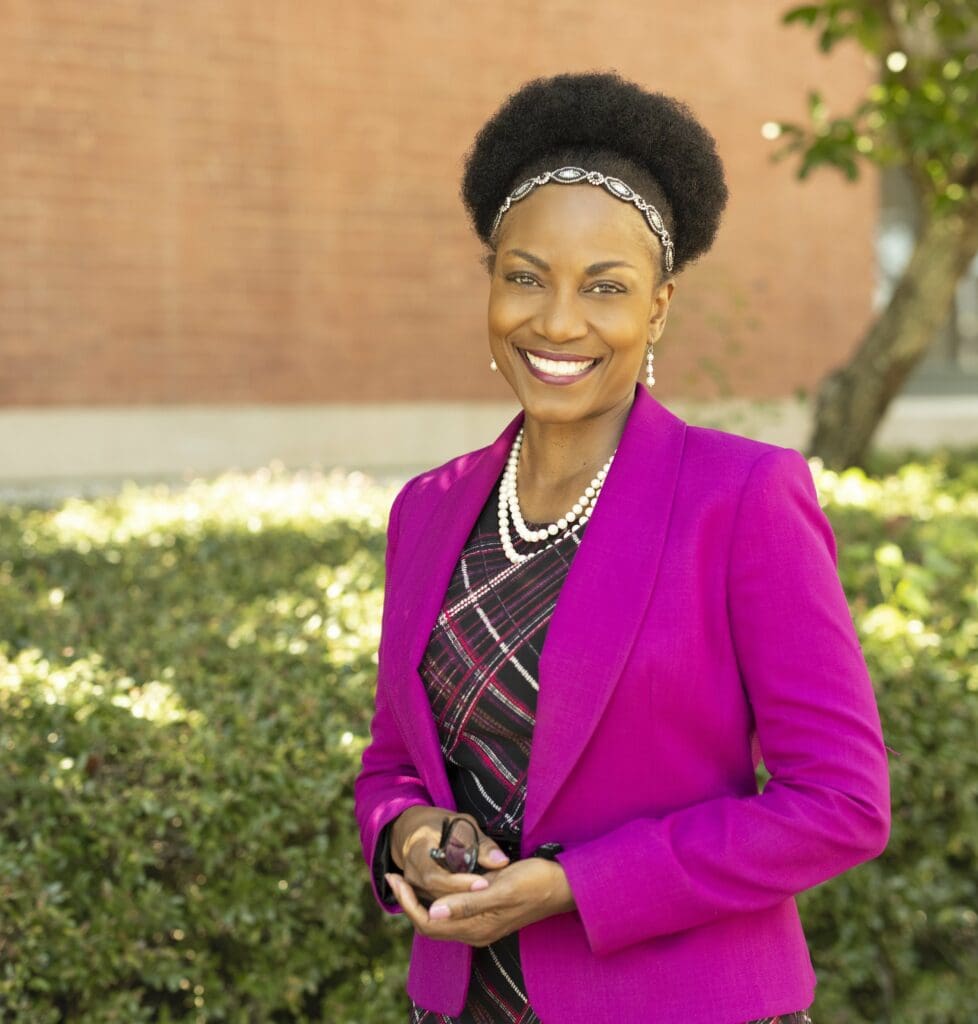NOVEMBER 2022 | DR. CHRISTINA KISHIMOTO

You can hear her passion for students in her voice and you can see her intentionality in how she leads her district design today. This is a trait that bodes well for the leader of a school district in a historically significant southern community that was at the heart of this nation’s civil rights movement. With a striking screen saver behind her of the commemoration of Bloody Sunday which occurred in March 1965 on the Edmund Pettus Bridge, Dr. Williams shares with me her personal and professional path to the Superintendency. Her story is a juxtaposition, like the story of Selma, of her own personal tragedy and the hope she found through education, church and community. She loved books, and perhaps books saved her. I am grateful that Avis shares her story so freely – it is her gift to the generation of women leaders that will follow and the students that she serves today.
Dr. Avis Williams applied twice to lead as CEO in the school district she felt a calling to. If your public school history books did not teach you about Selma, Alabama, then the movie Selma directed by Ava DuVerny in 2014 provides a visually rich accounting of that historic and tragic Selma-to-Montgomery march led by Martin Luther King, Jr., focused on voting rights. The first time Dr. Williams applied to the top job, she was a finalist, but did not get it. Now in retrospect, she can appreciate the work she got to do with the students in Guilford, NC and in Tuscaloosa, AL before becoming the chief executive in the Selma City school system in 2017.
Avis says things as they are. She is honest but with great kindness. She believes that those who choose to engage in the lives of children and youth in public education, have to be all-in, finding solutions, delivering opportunities and creating clear pathways for college success. Dr. Williams does not mince words, “I do not subscribe to this ideology that college is not for everyone, college is absolutely for everyone!” This is not a tagline, but the inspirational words to lead through innovation and mentoring. Avis believes that mentoring is the key to success for students of color. To hear her describe the power of mentorship programs for students of color is to understand that she believes it is the antidote to combat institutional and societal biases that encourage false beliefs about self. Students need to have a connection with mentors who look like them, believe in them, and are willing to invest time in their preparation.
Mentorship is also needed for women of color pursuing leadership roles. Avis shares, “I have a tribe of some amazing educators who are phenomenal women.” This network serves as a counterforce to the “crab-in-a-barrel” work environment where women are not always supportive of each other’s success. Avis describes this negative professional atmosphere as the possible result of women of color historically being cast against one another and made to feel that there were a limited number of seats available for them. But this is false and creates an unfortunate situation where women are giving up their collective power of voice and demand for equity. Avis believes that each woman needs to be supported and mentored to find her voice, her unique voice, because the voices of women are needed in policy leadership. Therefore, Avis surrounds herself with thought leaders committed to promoting women’s voice, “I love working with other women who believe in women empowerment because there is so much strength in our numbers and there is so much we can do to lift each other up.”
Everyone has a story, and behind that story we tell is another story and another story. Part of Avis’ story is that she served in the Army after high school, and so did her two older siblings before her, which landed her in Alabama. She is proud of this service to her country. She is the middle child of five children, and as she describes it “we didn’t know we were poor at the time because we fit in with everyone else in our community.” Avis describes a public school experience in Salisbury, North Carolina where she did very well but had little guidance. No one in her school talked to her about college despite her good grades and being an avid reader. As she states, “I grew up in poverty and I know the value of a quality education. And when it comes to our scholars, we get one shot at this, one shot!.”
As a Superintendent today, Avis impresses upon her team that all of them play an important role in being fully present as a mentor and guide to the students in the Selma City school system. In fact, this is not left up to chance, and a new 6+2 college and career readiness program supports junior high school students to put together an explicit personal plan for their pathway to success for high school and two years beyond high school. Dr. Williams believes that we know what students need and we need to be willing to design for them, while empowering students to be part of that planning for their present and future. Avis shares, “This work matters to me because I don’t want students to ever not know all of their options.”
Our students’ stories though can include significant trauma and we see more and more of that today. Avis shared about her own experience with trauma, as a child who grew up with an abusive father that placed tremendous stress on her mother and five children. In the midst of a moment that should have been a family celebration – her basic training graduation, she and her siblings experienced what no child should ever, when her father tragically murdered her mother. Avis shares, “We survived this trauma by relying on family, our church family…and we made it through. My siblings and I have excelled considering the trauma. I am living proof of what education can do.” These are the stories behind the stories, behind the stories.
Dr. Williams’ story is one of trauma, survival, reframing, compassion, and then choosing to love, serve and lead boldly to the great benefit of the next generation of students. It is about finding the strength to move beyond pain to a place of love.
Dr. Williams is a powerful voice for equity, which as you now know from her story is a voice for hope.
——————————————————————————————————
Dr. Avis Williams is the Superintendent of the Selma City School District in Selma, AL. Follow her on Twitter @DrAvisW

